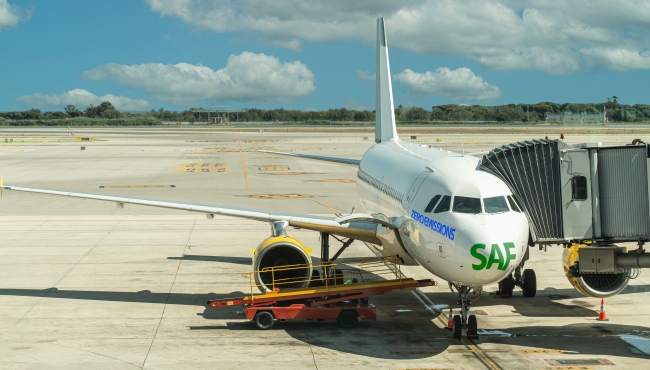Pending carbon taxes could affect future travel to Australia
Emission reduction schemes for international flights, namely the Carbon Offsetting Reduction Scheme for International Aviation (CORSIA), aims to price the emissions of airlines over a baseline through credible offset projects. CORSIA is in its infancy and is pricing carbon extremely low, although it’s hoped that CORSIA’s average offset price will increase, following the trend of regional and national schemes, such as the EU ETS. For airlines, some long-haul international flights may become too costly, especially considering simultaneous regional and national compliance exposure. Individual airlines will also have their own emission reduction targets, and reducing emissions by not flying to the far South Pacific may be seen as a simple solution. As the region relies heavily on international travel to maintain global connectivity, this could pose future risks for the Australian economy. The Australian government may need to incentivise travel back to Australia, in the event of constricted future flights. IBA consider this may include the government ensuring Sustainable Aviation Fuel (SAF) supply is established and substantial for an operator’s return leg, policy support for technological innovation within carbon capture and hydrogen propulsion for example, and lastly but most unlikely the government’s absorption of a portion of the carbon taxes attributed to operators flying to the region.
Willis Lease Finance Corporation undertaking new venture in Power-to-Liquid SAF project
A leading aircraft engine lessor who has been a provider of global aviation services for over 45 years, is exploring a new endeavour in the promising Power-to-Liquid (PtL) SAF (Sustainable Aviation Fuel) market. The company and its recently established subsidiary, Willis Sustainable Fuels, are advancing plans for a new SAF refinery in Teesside, UK, where PtL SAF will be produced from industrial waste CO2 and green hydrogen made from renewable energy. Feasibility studies were completed at the end of 2022, and the project is now in the engineering design phase. Willis will be the first aviation leasing company to develop a SAF project of this scale, which demonstrates the company’s optimism in the currently nascent technology. PtL (or synthetic kerosene) has significant potential for meaningful emissions reduction and strategic investments are already being implemented into green hydrogen and the renewable energy sector. Once synthetic kerosene becomes technologically mature, there will likely be great investment potential within this area of sustainable aviation, especially as it becomes wider knowledge that some types of SAF go hand in hand with environmental caveats. IBA suspects that Willis’ new venture will catalyse further innovation from a broader range of sustainability stakeholders in the industry.
UK Government announces funding for successful CCS projects as part of its commitment to North Sea oil and gas
In a controversial move, the UK Government announced in July, 100 new North Sea oil and gas licenses, designed to ensure the UK’s energy security and avoid costly and more carbon-intensive energy imports. In anticipation of backlash from stakeholders on the contradiction of net zero commitments, the government simultaneously announced the successful recipients from its latest funding round into carbon capture and storage (CCS) projects. Two projects were announced as winners, including the Acorn project based in North-East Scotland, and the Viking facility based on the Humber. For aviation, the Acorn project represents a meaningful step forward. Alongside their CCS capacity, the Acorn project plans to reform North Sea natural gas into hydrogen, with the CO2 emissions safely stored in geological sites. While Acorn makes no mention of earmarking any industry as the beneficiary of this hydrogen generation, aviation should be encouraged by the government’s significant backing of CCS. A government vision for UK CCS is expected later this year, aiming to increase confidence and visibility for investors. Although, hydrogen generation for direct use in aircraft at a commercial scale remains decades off, a stable and localised supply will play a key part in the more complex SAF pathways that can begin to make a material dent in aviation’s carbon footprint. While the government’s support for more North Sea oil and gas has been seriously questioned, the UK’s CCS industry will continue to be a beneficiary.
ESG Consulting – How can we help?
Our team can support you with advice on sustainable finance, ESG ratings, ESG strategy and understanding emerging technologies. Our expert insight is supported by cutting-edge insights from our award-winning IBA NetZero platform.
Find out more about ESG Consulting or request a demo of IBA NetZero

